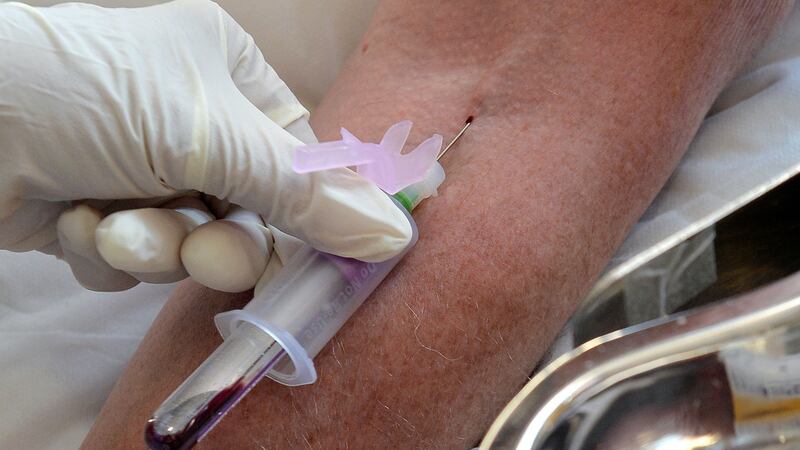A blood test used to predict ovarian cancer is better than thought – and can also pick up other forms of the disease, scientists have found.
The test assesses levels of a protein called Cancer Antigen 125 (CA125) in the blood, which is usually less than 35 units per millilitre (u/ml) in most healthy women.
The researchers found that an abnormal result, where CA125 is equal to or higher than 35 u/ml, is 12 times more likely to predict ovarian cancer than previously thought.
They also discovered than many women with abnormal CA125 levels, had another type of cancer such as pancreatic, lung or bowel cancer.
The team hopes that their findings, published in the journal PLOS Medicine, could help in early diagnosis of women with cancer while reducing unnecessary worry among those who do not have the disease.
Dr Fiona Walter, from the University of Cambridge – and senior author on the study, said: “This blood test is clearly a useful tool for detecting ovarian cancer in primary care, particularly for women aged 50 or more.
“Doctors should also consider the possibility of other cancers if the test is abnormal, especially if ovarian cancer has been ruled out, to prevent delays to a diagnosis.
“Our results will help doctors triage women of different ages, selecting those with a higher risk of having cancer for fast referral and further tests.
“We hope that using the test, in this way, will help diagnose women with cancer earlier, while reducing unnecessary worry in those without the disease.”
A team of researchers led by Dr Garth Funston at the University of Cambridge analysed the data gathered from more than 50,000 women who had the CA125 test performed between May 2011 and December 2014.
Of the 3,468 women with an abnormal result, more than 350 (10%) had ovarian cancer. In their 2011 ovarian cancer guidelines, The National Institute for Health and Care Excellence estimated this figure at 0.81%.
According to the researchers, the findings show an abnormal CA125 result is around 12 times more likely to predict ovarian cancer than the previous estimate.
The study also showed that more than 380 (12%) women who had an abnormal CA125 result had another form of cancer such as pancreatic, lung or bowel cancer.
The researchers said that the proportion of women with an abnormal test who had cancer was much higher in women aged 50 or over (33%) than women younger than 50 years of age (6%).
Dr Jodie Moffat, head of early diagnosis at Cancer Research UK – which funded the research, said: “Ovarian cancer is particularly difficult to diagnose, as women often experience symptoms that are difficult to pinpoint or are readily put down to other causes.
“This research reinforces the value of a readily available test.
“We encourage GPs to use the CA125 test readily, not only may this help to identify more women at an earlier stage of ovarian cancer, but it could also help to identify other cancers too.”








